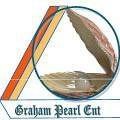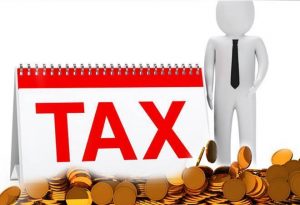
Kenya Revenue Authority
Tax is the means through which both the National and County Governments raise revenue to fund public expenditure. The only body mandated to collect taxes on behalf of the National Government is the Kenya Revenue Authority (KRA). Generally, people in Kenya pay two types of taxes, namely direct and indirect taxes. Direct taxes refer to the portions of income people, business firms and other taxable organizations remit directly to the Government as income tax. Indirect taxes, on the other hand, are taxes charged when one purchases goods or services and they include VAT, Excise duty and Custom taxes.
Breakdown of different types of taxes
1. Income Tax
This is a direct tax charged on all the income earned by a person, business firm and any other taxable organization. Income tax is charged on both residents and non-residents, as long as the accrued income was earned in Kenya.
Income tax is usually imposed on:
- Business income
- Employment income
- Rent income
- Investment income
- Income from services rendered
- Pensions among others
The Kenya Revenue Authority (KRA) employs different methods to collect income tax depending on the sources of income. These methods include:
a) Corporation Tax
Corporation tax is charged on corporate bodies such as Limited Companies, Trusts and Co-operatives on their annual income. Companies that are foreign based but have a branch in Kenya only pay Corporation Tax on income accrued within the country. Local Companies pay a rate of 30% while foreign Corporations pay 37.5% on all taxable profits.
b) Pay As You Earn (PAYE)
PAYE refers to the amount collected as income tax from gainful employees through deduction at the source, that is, deduction by the employers. This method in essence makes all employers to be Agents of KRA, hence they are required to deduct tax according to the prevailing tax rates from their employees' salaries/wages on each payday and remit the same to KRA on or before the 9th of the following month.
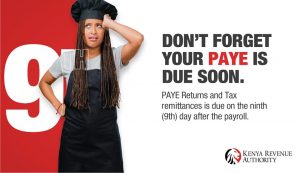
It is important to note the following:-
- PAYE is chargeable on bonuses, director's fees, commissions, weekly wages and both monthly and annual salaries.
- Employees are eligible for a personal relief applicable to all employees and that KRA may give Insurance, Mortgage and other special reliefs to individuals who qualify for them.
- All taxpayers, both individuals and firms are expected to file their annual returns every year, before 30th June.
Below are some of the rates applicable per salary scale.
- Monthly Taxable Income
- Kshs. 11,180 and below (10%)
- Kshs. 11,181 to Kshs. 21,714 (15%)
- Kshs. 21715 to Kshs. 32,248 (20%)
- Kshs. 32,249 to Kshs. 42,781 (25%)
- Kshs. 42,782 and above (30%)

c) Withholding Tax (WHT)
WHT is deducted from certain classes of income at the point of making payment to non-employees by a given firm. It is deducted at the source and remitted to the Commissioner of Domestic Taxes from any of the following sources of income:
- Interest
- Dividends
- Royalties
- Management or professional fees (including consultancy, agency or contractual fees)
- Commissions
- Pensions
- Rent received by non-residents
- Other payments specified
WHT rates for residents
- Dividend Income (10%)
- Quality Divided (5%)
- Royalties (5%)
- Consultancy/agency fees (5%)
- Contractual fees (3%)
- Interest from bearer instruments (25%)
- Interest from government bearer bonds (15%)
- Qualifying interest from housing bonds (10%)
- Qualifying interest from bearer instruments (20%)
- Insurance brokers’ commissions (5%)
- Insurance Agents Commissions (10%)
WHT Rates for Non-Resident
- Rent Premium for Immovable Property (30%)
- Rent Premium for Movable Property (15%)
- Royalties (20%)
- Management and Professional Fees (20%)
- Dividend Income (15%)
- Pension/retirement annuity (5%)
- Appearance or performance fees (20%)
- Supporting/arranging an appearance (20%)
- Management or Professional fees (12.5%)
- Interest on bearer instruments (20%)
d) Advance Tax
This is tax paid in advance before a Public Service Vehicle (PSV) or a Commercial Service Vehicle goes for annual inspection. The current rates for Vans, Trucks, Lorries and Pickups are Kshs. 1,500 or Kshs. 2,400 per ton of load capacity per annum. The rates for Station wagons, Saloons, Minibuses and Coaches are Kshs. 60 per passenger capacity each month or Kshs. per passenger per annum.
e) Installment tax
Installment tax is pad by persons who have tax payable for any year that amounts to Kshs. 40,000 and above.
2. Rental Income Tax
This is a tax charged on rental income received from renting out property. Taxation of rental income depends on how the rented property was used for-residential or commercial purposes. Individuals and firms that rent out property to others for either residential or commercial use are required to pay 10% income tax on the total monthly gross rent, which is payable on or before 20th every month. For rental income of Kshs. 10 Million and above per year, filing and remittance of rental income tax can be done annually.
3. Value added Tax (VAT)
VAT is a consumption charge levied on the supply of taxable goods or services made or provided in Kenya and on importation of taxable goods or services into Kenya. It is worthy noting that while firms can voluntarily register for VAT, it becomes a mandatory requirement for them if their annual revenues exceeds Kshs. 5 Million. The VAT rates applicable at the moment are:
- 16% for all taxable products
- 8% for petroleum products
- 0% for particular groups of goods and services (Zero rated)
Filing of VAT and remittance of the same to the Commissioner of Revenue Authority is to be done on or before 20th every month.

4.Excise Duty
This is an indirect charge (duty of excise) administered on the sale of certain goods. The duty of excise is imposed on some goods manufactured in Kenya or imported into the country, which are specified in the 1st Schedule to Excise Duty Act, 2015. Individuals and firms dealing in excisable goods and services are required to pay excise duty. The list and types of excisable goods and services are listed in the 5th Schedule as read together with Section 117 (1) (d) of the Customs and Excise Act, CAP 472 Laws of Kenya. They include:-
- Mineral water
- Juices, soft drinks
- Cosmetics and preparations for use on hair
- Other beer made from malt
- Opacque beer
- Mobile cellular phone services
- Fees charged for money transfer among others
5. Capital Gains Tax (CGT)
This is a form of income tax which is charged on a net gain that a business makes after sale of land or building.
6. Agency revenue
This is a type of payment that KRA collects on behalf of various revenue collection agencies in Kenya. Agency Revenue in Kenya includes Stamp Duty and Betting and Pool Tax.
a) Stamp Duty
Stamp Duty is a tax charged in transfer of properties, shares and stock. It is collected by the ministry of lands, which has seconded the function to KRA.
b) Betting and Pool Tax
This is a tax charged on winnings from betting, gaming and lottery activities. Betting, gaming and lottery businesses are required to withhold as tax and pay to KRA a percentage of the winnings being paid out to winners.
7. Turnover Tax
In accordance with the Finance Act, 2019, the Turnover Tax (TOT) has been re-introduced and will be payable from 1st January 2020.
Who should pay TOT?
Turnover Tax (TOT) is payable by any resident person whose turnover from business does not exceed or is not expected to exceed Kshs 5,000,000 during any year of income.
TOT does not apply to:
- Persons registered for VAT
- Persons with business income of Kshs 5,000,000 and above,
- Employment Income,
- Rental Income,
- Limited Liability Companies,
- Management and Professional Services among others.
What is the rate for Turnover Tax (TOT)?
The tax rate for TOT is 3% on the gross sales/turnover and is a final tax.
Filing of TOT Returns
TOT will be filed and paid on a monthly basis. The due date is on or before 20th of the following month.
Note
TOT payers are also liable to pay Presumptive Tax at a rate of 15% of the Single Business Permit fee payable or licence payable. However, Presumptive Tax paid will be offset against the TOT payable.

BOOKKEEPING & AUDITING
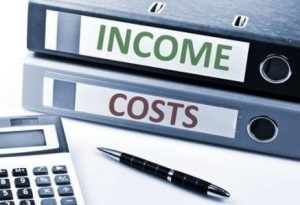

Bookkeeping refers to the recording of all financial transactions, and is part of the process of accounting in business. Business transactions may include purchases, sales, receipts and payments by a person or an organization. Accurate bookkeeping is a necessity for any business. It may seem to be something of a chore but it's vitally important that one keeps track of all the activities of the business with financial implications. It is very sad to mention that many businesses which would otherwise have been successful have been brought down by their failure to maintain proper financial records.
Importance Of Bookkeeping
- Bookkeeping helps in cash flow management which is a very important business component.
- The information from books of accounts helps in making informed decisions when it comes to planning.
- It helps one to determine whether the business is making profits or losses, and also its sustainability.
- The same business records can be used by the entrepreneur to access credit from different financiers.
- Accurate bookkeeping ensures transparency business activities and performance which is necessary in case business is owned by more than one person.
- Bookkeeping information is necessary to KRA as it is used to determine tax to be charged on different tax obligations, and lack of such information may lead to penalties.
- Proper business record keeping is a requirement by law.
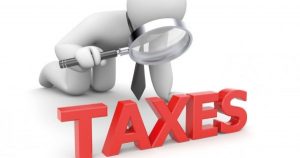
I believe, as an entrepreneur, by now you appreciate the fact that proper bookkeeping is very important and indeed inevitable. It is equally important to ensure that the right people conduct your bookkeeping due to its sensitivity. Here at Graham Pearl Enterprises, and in association with our different professional partners, we have a formidably team that can organize and maintain books of accounts, make assessment of businesses, give financial reports and ensure taxes are properly determined and paid, for both profit and non-profit organisations. We give professional business and entrepreneurial advice. We also have different user-friendly software systems that can be employed in businesses and other offices to provide solutions to most challenges faced in the day-to-day running of the institutions.
Allow us to work with you to ensure soundness, compliance and success of your business. For more information, visit our office in Ukunda town. You can also call, SMS, chat us on WhatsApp via +254 723 596 849 or send email to info@grahampearlenterprises.com.

